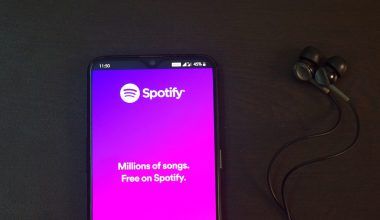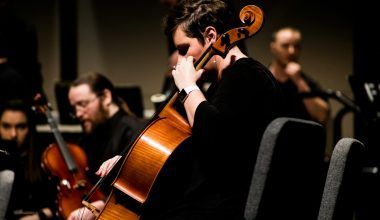Becoming a musician is a dream for many people around the world. Music has the power to move us, inspire us, and bring us together. But how do you turn your passion for music into a career? This guide will walk you through everything you need to know about how to become a musician, from developing your skills to promoting your music and building a fanbase.
1. What Does It Mean to Be a Musician?
Being a musician involves more than just playing an instrument or singing. It requires dedication, creativity, and a willingness to constantly learn and evolve. Musicians express themselves through their music, connect with audiences, and often have to navigate the business side of the industry. Whether you aspire to be a professional performer, a songwriter, or a music teacher, understanding the various roles within the music world is crucial. How to become a musician involves understanding these roles and finding where you fit.
2. Finding Your Musical Path
Choosing an Instrument
The first step in becoming a musician is choosing an instrument that resonates with you. This could be anything from the piano, guitar, drums, or even digital music production tools. Consider what type of music you enjoy and what instruments are commonly used in that genre. Exploring various instruments can also help you discover new ways to become a music artist.
Vocal Training
If singing is your passion, vocal training is essential. Working with a vocal coach can help you improve your technique, expand your range, and maintain vocal health. Regular practice and proper care of your voice are crucial for longevity in singing.
Exploring Genres
Music is incredibly diverse, and there are countless genres to explore. Whether you are drawn to classical, jazz, rock, pop, hip-hop, or electronic music, understanding different styles can broaden your musical knowledge and influence your own creations.
3. Developing Your Skills
Practice Techniques
Regular practice is the cornerstone of becoming a skilled musician. Set aside dedicated time each day to practice your instrument or vocals. Focus on different aspects such as scales, techniques, and new pieces to keep your practice sessions varied and engaging. Effective practice is one of the best ways to become a musician proficient in your craft.
Music Theory
Understanding music theory is like learning the grammar of a language. It helps you comprehend how music works, compose your own pieces, and communicate with other musicians. Topics like scales, chords, and rhythm are fundamental to music theory. Knowledge of music theory is critical in how to become a successful artist with a solid foundation.
Songwriting
Songwriting allows you to express your thoughts, emotions, and stories through music. Start by writing simple melodies and lyrics, then experiment with different structures and styles. Collaboration with other songwriters can also enhance your skills and inspire new ideas. Mastering songwriting is another crucial step in how to become a lyricist who can create original music.
4. Building Your Brand
Creating a Unique Sound
Your unique sound sets you apart from other musicians. Experiment with different styles and techniques until you find a sound that is distinctly yours. This could be a combination of your voice, instrument, and the way you compose your music. Your sound is your identity in the music world and a significant part of learning how to become a musician recognized by others.
Image and Style
Your image and style are important parts of your brand as a musician. This includes your stage presence, fashion, and the visual elements associated with your music, such as album covers and music videos. Consistency in your image helps fans identify and connect with you.
Networking
Building connections in the music industry is crucial. Attend concerts, join music clubs, and participate in workshops and festivals. Networking can open doors to collaboration opportunities, gigs, and valuable advice from experienced musicians.
5. Recording Your Music
Home Recording
With advances in technology, home recording has become accessible to many musicians. Invest in basic recording equipment like a good microphone, audio interface, and recording software. Learning how to produce and mix your own music can save you money and give you more creative control. Home recording is a practical way to become a musician who can independently produce music.
Professional Studios
For high-quality recordings, consider working in a professional studio. Studios offer advanced equipment and acoustics, as well as experienced engineers who can enhance your sound. Weigh the costs and benefits to determine if this is the right choice for you.
DIY vs. Hiring a Producer
Producing your own music allows for complete creative control, but it can be challenging without experience. Hiring a producer can bring a new perspective to your music and help you achieve a polished, professional sound. Consider your budget and artistic vision when making this decision. Choosing between DIY and professional help is part of the decision-making process.
6. Releasing Your Music
Music Distribution
Getting your music to the public involves distribution. Digital distribution platforms like Deliver My Tune, DistroKid, and TuneCore make it easy to release your music on streaming services like Spotify, Apple Music, and Amazon Music. Effective distribution is key in how to become a musician with a wide reach.
Streaming Platforms
Streaming platforms are essential for reaching a global audience. Optimize your artist profiles, use playlists to your advantage, and engage with your listeners through platform-specific features. Being successful on streaming platforms is one of the modern ways to become a musician known worldwide.
Physical Media
Despite the dominance of digital music, physical media like CDs and vinyl records still have a place, especially for fans who appreciate tangible items. Consider offering limited editions or special packages to create a unique fan experience. Physical media can add value to your brand in how to become a musician with dedicated fans.
7. Promoting Your Music
Social media is a powerful tool for promoting your music. Use platforms like Instagram, Facebook, Twitter, and TikTok to share updates, behind-the-scenes content, and engage with your audience. Consistent posting and interaction can significantly boost your visibility. Social media proficiency is crucial in how to become a musician with an active online presence.
Music Videos
Music videos add a visual dimension to your music and can attract a wider audience. Whether you create a high-budget production or a simple lyric video, ensure that it complements your music and enhances the viewer’s experience. Creating compelling music videos captures both the eyes and ears of the audience.
Live Performances
Performing live is one of the best ways to connect with your audience and build a fanbase. Start with local gigs and open mic nights, then aim for larger venues and festivals as you gain experience. Live streaming performances can also reach fans who cannot attend in person.
8. Building a Fanbase
Engaging with Fans
Engaging with your fans is crucial for building a loyal fanbase. Respond to comments, hold Q&A sessions, and show appreciation for their support. Personal interactions can turn casual listeners into dedicated fans. Engaging effectively is key to become a musician with a strong fanbase.
Fan Clubs and Communities
Creating a fan club or community can foster a sense of belonging among your fans. Offer exclusive content, early access to releases, and special events to keep them engaged and excited about your music. Fan clubs and communities maintains a close-knit group of supporters.
Merchandise
Merchandise like t-shirts, posters, and accessories provides an additional income stream and promotes your brand. Design products that reflect your image and appeal to your fans. Selling merchandise at live shows and online can boost your earnings and visibility. Merchandise is a practical aspect of how to become a musician with diversified income streams.
9. Understanding the Music Industry
Record Labels
Record labels can provide resources and support for your music career, including marketing, distribution, and production. However, they also take a significant share of your earnings. Understanding the pros and cons of signing with a label versus remaining independent is crucial. This knowledge helps in making informed decisions on how to become a musician who thrives in the industry.
Music Publishing
Music publishing involves the rights to your songs and how they are used. Publishers can help you license your music for use in films, commercials, and other media. Understanding publishing agreements and retaining control over your work is important. Navigating music publishing is a key step to become a musician with protected intellectual property.
Copyright and Royalties
Protecting your music through copyright ensures you have legal rights to your creations. Register your songs with the appropriate authorities and understand how royalties work. Performance royalties, mechanical royalties, and sync royalties are different types of earnings you can receive from your music.
10. Financial Management for Musicians
Budgeting
Managing your finances is crucial for a sustainable music career. Create a budget that includes expenses for equipment, marketing, travel, and living costs. Track your income and expenses to ensure you are living within your means. Effective budgeting is essential in financial stability.
Income Streams
Diversify your income streams to ensure financial stability. In addition to music sales and streaming, consider teaching music, performing live, licensing your music, and selling merchandise.
Taxes
Understanding taxes for musicians can save you money and legal trouble. Keep accurate records of your income and expenses, and consult with a tax professional to ensure you are meeting your obligations and taking advantage of any deductions available to you. Proper tax management is crucial in becoming a musician who stays financially compliant.
11. Overcoming Challenges
Staying Motivated
The path to becoming a musician can be long and challenging. Set short-term and long-term goals, celebrate your achievements, and stay connected to your passion for music to keep yourself motivated. Motivation is key become a musician who perseveres through obstacles.
Dealing with Rejection
Rejection is a part of any artistic career. Learn from setbacks, seek constructive feedback, and use rejection as motivation to improve and persevere. Remember that every successful musician has faced rejection at some point. Resilience is important in how to become a musician who can handle criticism constructively.
Health and Well-being
Taking care of your physical and mental health is essential for a sustainable career in music. Maintain a healthy lifestyle, practice stress management techniques, and seek support when needed to ensure you can continue to create and perform at your best. Well-being can maintain longevity in their career.
12. Expanding Your Horizons
Collaborations
Collaborating with other musicians can bring new perspectives and opportunities to your music. Whether it’s co-writing a song or performing together, collaborations can expand your audience and enhance your creativity. Collaborations are effective ways to become a musician who is versatile and well-connected.
Touring
Touring allows you to reach new audiences and gain valuable performance experience. Plan tours strategically to maximize exposure and manage costs. Touring is a significant step to become a musician with a wide-reaching impact.
International Markets
Exploring international markets can open up new opportunities for your music. Learn about different cultures and music scenes, and consider translating or adapting your music for different audiences. International exposure is one of the advanced ways to become a musician with a global fanbase.
13. Education and Continuous Learning
Music Schools
Attending a music school can provide formal training and networking opportunities. Many successful musicians have benefited from the structured learning and connections made at music institutions. Education is a foundational aspect of how to become a musician with a strong academic background.
Online Courses
Online courses offer flexibility and access to a wide range of topics and instructors. Platforms like Coursera, Udemy, and Berklee Online provide courses in music theory, production, business, and more. Continuous learning through online courses is one of the convenient ways to become a musician who stays updated with industry trends.
Workshops and Masterclasses
Workshops and masterclasses provide intensive, hands-on learning experiences. Participate in events hosted by experienced musicians and industry professionals to gain new skills and insights. These events are valuable to become a musician who continually hones their craft.
14. Legal Considerations
Contracts
Understanding and negotiating contracts is crucial for protecting your rights and interests. Whether it’s a record deal, publishing agreement, or performance contract, always read the fine print and seek legal advice if needed. Sound contract management is essential in how to become a musician who avoids legal pitfalls.
Intellectual Property
Protecting your intellectual property ensures you retain control over your music. This includes copyrights, trademarks, and patents related to your work. Intellectual property rights are vital in how to become a musician with safeguarded creations.
Legal Representation
Having legal representation can help you navigate the complexities of the music industry. Lawyers specializing in entertainment law can provide valuable guidance and protect your interests in negotiations and disputes. Legal support is an important aspect of how to become a musician with professional backing.
FAQs
No formal qualifications are required, but training and practice are essential.
Costs can vary widely, but expenses typically include instruments, lessons, recording equipment, and marketing.
Yes, many successful musicians started their careers later in life.
Not necessarily, but major cities offer more opportunities for networking and gigs.
Social media is very important for promoting your music and engaging with fans.
Yes, many musicians make a living through performances, streaming, sales, and other income streams.
Distribute your music on streaming platforms, promote it on social media, and perform live.
Not necessarily; many independent musicians find success without a record label.
Register your music with copyright authorities and understand your rights.
Look for terms related to royalties, rights, duration, and obligations.
Practice regularly, get feedback, and watch performances by other artists.
A good microphone, audio interface, computer, and recording software.
Network at events, join music communities, and use online platforms.
It involves the management and licensing of your songs for various uses.
Use a music distribution service like Deliver My Tune.
Use it as constructive feedback to improve your music.
Payments you receive for the use of your music.
Yes, with proper planning and understanding of international markets.
Payments for the use of your music in films, commercials, and TV shows.
Create a budget, track expenses, and diversify income streams.
Glossary
- A&R (Artists and Repertoire): Division of a record label responsible for talent scouting and overseeing the artistic development of recording artists.
- BMI (Broadcast Music, Inc.): An organization that collects license fees on behalf of songwriters, composers, and music publishers and distributes them as royalties.
- Chorus: The part of a song that repeats at intervals, typically following each verse.
- EP (Extended Play): A musical recording that contains more tracks than a single but is too short to qualify as a full album.
- Gig: A live music performance.
- ISRC (International Standard Recording Code): A unique identifier for music tracks, used for tracking and royalties.
- Mastering: The process of preparing and transferring recorded audio from a source containing the final mix to a data storage device.
- Mixing: The process of combining multiple audio tracks into one final track.
- PRS (Performing Right Society): An organization that collects royalties on behalf of composers, songwriters, and music publishers.
- Sync Licensing: Permission granted by the copyright holder to synchronize music with some kind of visual media output.
- Venue: A place where live music performances are held.
By following this comprehensive guide on how to become a musician, you’ll be well-equipped to navigate the journey from aspiring artist to successful musician. Embrace the challenges, stay dedicated, and keep creating music that resonates with you and your audience.
For further reading, explore these related articles:
- Deliver My Tune’s Exciting New Services!
- 40 Ways to Earn Money as a Musician
- What is Performance Royalty?
For additional resources on music marketing and distribution, visit Deliver My Tune.






